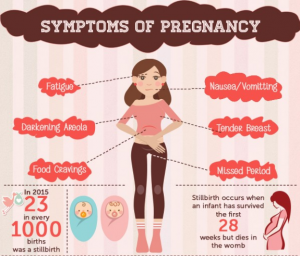Pregnancy and Thyroid Disorder- Everything You Need To Know

It is estimated that almost 5% of all pregnancies are affected by thyroid disorder and can result in adverse effects on pregnancy as well as the baby. Moreover, if left untreated, it increases the risk of miscarriage and can restrict the growth of the baby. Due to these sensitivities, current guidelines recommend appropriate screening of all pregnant women to ensure a safe pregnancy.
A thyroid disorder may occur before or during pregnancy. But its symptoms and normal range values of thyroid hormones remain unaffected. Let’s understand this in detail.
Thyroid hormones in pregnancy
The T3 and T4 hormones released by the thyroid gland are essential for healthy growth and development of the brain and nervous system of the foetus during the first three months of pregnancy. Interestingly, the pregnancy hormones hCG (human chorionic gonadotropin) and oestrogen can cause variations in the levels of thyroid hormones. This may give rise to hyperthyroidism and hypothyroidism. Both conditions are common in pregnancy and should be treated for a safe pregnancy.
What causes thyroid disease in pregnancy?
Hyperthyroid disease: An autoimmune disease called Graves’ disease is the most common cause of maternal hyperthyroidism. In Graves’ disease, an antibody called thyroid-stimulating immunoglobulin (TSI) is made by the body. This antibody instigates the thyroid gland to overreact and produce excessive thyroid hormone, causing hyperthyroidism. Excessively high level of TSI can make it travel through the blood into the foetus. Once TSI reaches the foetus, it may instigate the thyroid of the foetus too to produce more hormones than needed. This can be a dangerous situation.
Hypothyroid disease: An autoimmune condition called Hashimoto’s thyroiditis is the most common cause of maternal hypothyroidism. In Hashimoto’s thyroiditis, the cells of the thyroid gland are mistakenly attacked by body cells. This results in the shortage of cells and enzymes for the thyroid to produce enough thyroid hormone, causing hypothyroidism.
Common symptoms of hyperthyroidism and hypothyroidism during pregnancy
Hyperthyroidism
It has been observed that hyperthyroidism may reflect symptoms of a normal pregnancy, such as increased heart rate or palpitations, intolerance to heat, persistent vomiting, and fatigue. Other than these, symptoms of hyperthyroidism during pregnancy may include the following:
- Irregular heartbeat
- Extreme nervousness on minor issues
- Shaky hands
- Excessive nausea or vomiting
- Difficulty falling asleep
- Weight loss
- Low weight gain as compared to the expected weight gain of a typical pregnancy
Hypothyroidism
Similar to hyperthyroidism, some of the symptoms of hypothyroidism can be easily confused with general pregnancy symptoms. These include weight gain, a feeling of extreme tiredness, etc. Apart from these, other symptoms of hypothyroidism during pregnancy may include:
- Constipation
- Forgetfulness
- Inability to concentrate
- Memory problems
- Intolerance to cold temperatures
- Cramps in muscles
Diagnosis of thyroid disease in pregnancy
Diagnosis of hyperthyroidism and hypothyroidism in pregnancy requires a thorough history of the pregnant woman, her symptoms, physical examinations, and blood tests. The most effective way to find out the disorder is by doing a simple blood test called ‘Thyroid Profile’. This test measures the levels of thyroid hormones T3 and T4 along with thyroid-stimulating hormone (TSH). The values are enough to conclude if there’s a thyroid disorder.
Treatment of thyroid disease in pregnancy
Hyperthyroidism: It can be managed by giving an antithyroid medication, especially during the first trimester. The medication works by blocking the production of thyroid hormones. It may also be required to continue medication even after three months in some cases. In some very rare cases that do not respond to antithyroid medication, or develop severe side effects due to it, surgery may be necessary to remove a part of the thyroid gland.
Hypothyroidism: It can be managed by giving a synthetic hormone that is similar to the T4 hormone of the thyroid gland. In case of previous hypothyroidism, it is crucial to notify this to the doctor as the dosage of medication needs to be adjusted to cope with the increased requirement of thyroid hormones during the first three months of pregnancy.
Why is it important to get a thyroid profile done during pregnancy?
Thyroid hormone is required in the first three months of the pregnancy for appropriate development of the brain and nervous system of the foetus. So, these hormones should be present in an adequate amount to fulfil this requirement. Excess or lack of hormones can cause the following complications.
Hyperthyroidism can cause:
- Restriction in the growth of the foetus
- Preeclampsia
- Stillbirth
Hypothyroidism can cause
- Intellectual deficits in offspring
- Miscarriage
Follow these guidelines and get a thyroid profile done to ensure a safe and healthy pregnancy.














